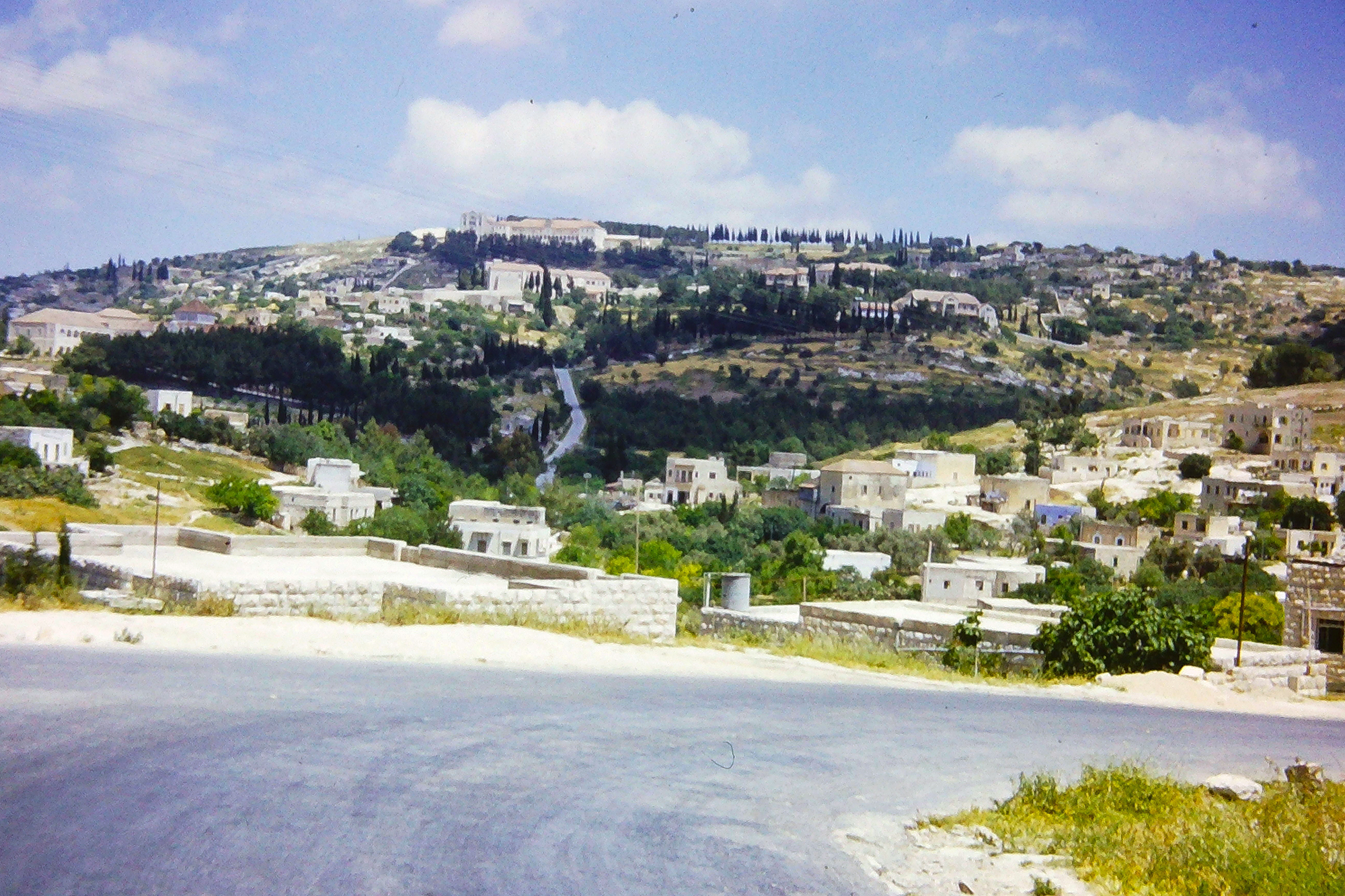Israel and America: What Does It Mean for Democracy When the Streets Fill Up?
To gauge what has been happening in Israel, imagine the streets of our country on January 6, 2021, and the days and weeks that followed, had Mike Pence rejected the Biden electors.
|
Listen To This Story
|
My parents — liberal, nonobservant, second-generation New York Jews — first visited Israel in 1951, three years after its creation and six years before my birth. Over the years, I remember them speaking of the unexpected “magical, miraculous” sensation they each experienced when they first deplaned and set foot on the land. They said it “somehow felt like coming home.”
They were not Zionists, per se, and never expressed any intention to move to Israel, but their allegiances were clear, from the time of the Six-Day War, when I was just old enough to perceive them, through the end of their days, decades later.
Prime Minister Golda Meir was venerated, the urbane and erudite UN Ambassador Abba Eban greatly admired, Egypt and its Arab neighbors suspected of plotting a second genocide, and Israel’s reputed possession of nuclear weapons considered a godsend in light of its precarious position.
These were the givens I grew up with, along with the many slides my father, an amateur photographer, took during their two early-’50s visits, beautiful slides I preserved and possess to this day.
I’m not really sure at what point or for what specific reason I began first to question, and ultimately to vehemently oppose, my parents’ views.
I know that for a number of years it seemed reasonable to me that Israel — so tiny on my 16-inch globe, and so hemmed in — grabbed several swaths of land as the spoils of what had been painted as defensive wars. If ever, I thought, there was a state that needed buffers! And Israel was, at least for a time, the Middle East’s only functioning democracy, something very much worth celebrating.
It has become harder and harder to celebrate or even condone. Reflecting back over the six decades of Israeli history that I have been able directly to observe and process, it strikes me as almost the perfect counterexample to Martin Luther King Jr’s 1965 assertion that “the arc of the moral universe is long, but it bends towards justice.” The long arc of Israeli history seems to have bent towards injustice — segment by segment, insistently.

Some, in retrospect at least, will assert that the “Jewish state” was misbegotten: It can be viewed as a terrible blunder, bordering on lunacy, to plunk a new nation, composed largely of refugees practicing a competing religion, down in the midst of an ancient indigenous culture, killing or forcibly displacing so many of that culture’s residents in the process. In the “holy land,” no less, an epicenter of religious devotion to which the rivals had each laid claim for millennia!
But it seems to me that the path traveled by Israel and its neighbors to their current destination was not inevitable. There were accords, some seemingly genuine, and many opportunities to de-escalate and accommodate — prospects for an authentic and lasting peaceful coexistence, perhaps eventual amity.
Which brings us to Israel’s current internal crisis, which is in many ways a culmination of decades of hypocritical behavior, a hyper-aggressive, zero-sum approach to relations with an oppressed people on the part of a formerly oppressed people — a pattern no less grievous for being so often repeated in the course of human history.
The determination of Prime Minister Benjamin Netanyahu and his government — dependent as it is on the support of implacably far-right parties — to “reform” Israel’s judiciary stems primarily from the high court’s role as a brake on the Right’s aggressive nationalist program to expand Jewish settlement of Palestinian lands and impose increasingly harsh conditions on Palestinian residents of Gaza and throughout Israel. Some analysts also discern a more personal goal on the part of Netanyahu, who, facing prosecution on corruption charges, would ostensibly benefit from a weakened judicial system.
But more than alarm at such outcomes, what has driven Israelis by the hundreds of thousands to the streets is what is widely perceived as a mortal threat to the nation’s democracy itself.
There will be, for any Israeli even dimly aware of the history of the Nazis’ rise, eerie echoes of Gleichschaltung, the process of consolidation, or coordination, by which Hitler and the Nazis took control first of all branches of what had been a democratic government, and then of virtually every German institution, effectively neutering all opposition to their deadly program.
The Israeli legislature (Knesset) and executive are far less separated as branches of government than are the US Congress and White House, meaning that in Israel the separation of powers fundamental to modern republics depends almost entirely on an independent judiciary. Since Netanyahu came back to power in December, that independence has been under frontal assault: Proposed legislation would cede to Netanyahu control over judicial appointments and subject high-court decisions to overruling by a simple majority vote in the Knesset — i.e., by the party or parties currently in power.
Public anger and resistance had been building since the first mass protests in front of the Knesset earlier this year. But Netanyahu’s firing this Sunday of his defense minister, Yoav Gallant, for his expressed opposition to continuing to move forward with the judicial overhaul legislation, triggered the largest demonstrations in the nation’s history along with sporadic violence and the start of a general strike, bringing Israel to a tense standstill.
In response, Netanyahu, a man not easily deterred, gave ground on Monday, announcing a “delay” in the push to pass the judicial overhaul package. Where this will all wind up is a subject of much speculation. The pressure from the far-right parties remains intense but it seems clear that any renewed attempt to ram through the legislation will be met with fresh and intensified public opposition. The term “civil war” has been popping up in mainstream political discourse.
There will be, for any Israeli even dimly aware of the history of the Nazis’ rise, eerie echoes of Gleichschaltung, the process of consolidation, or coordination, by which Hitler and the Nazis took control first of all branches of what had been a democratic government, and then of virtually every German institution, effectively neutering all opposition to their deadly program. And of course, more contemporary examples of “managed” democracy bordering on autocracy, such as Viktor Orbán’s Hungary, are there for the viewing. To say nothing of Vladimir Putin’s Russia.

Or imagine, if you will, the streets of our own country on January 6, 2021, and the days and weeks that followed, had Mike Pence rejected the Biden electors and — take your pick — thrown the election back to the states, or to the House (where the Republicans held a majority of state delegations and would almost certainly have elected Trump), or simply declared Donald Trump rightly elected. Would the US under “President” Trump have been governable?
Or surmise the reaction on the American Right if Biden and the Democrats, before the 2022 election, had first nixed the Senate filibuster and then passed legislation to expand (i.e., pack) the Supreme Court with four new progressive justices. Did someone say “Fort Sumter has been fired upon!?”
So, looking at these two purported beacons of modern democracy wrestling with authoritarian threats, one suspects there are lines that cannot be crossed. But it is not always easy to identify in advance just where those lines will be drawn.
Israel’s long rightward veer has drawn virtually no demonstrable protest over the years from secular, centrist, or even progressive Israelis. There were no “Stop the Steal” challenges to Israeli elections, in spite of their reliance on a highly concealed, computerized voting system deployed in a country world-renowned for its cyber talents. Here in the US, dubious elections in 2000, 2004, and 2016 drew some private eyebrow raising and public throat clearing, but not much more than token resistance. We are well-schooled in the art of moving on.
Authoritarianism, the eternal challenge to democratic rule, is something like a retrovirus in its cyclical dormancy and resurgence. If we think of our democracy as a backyard bird, we can see fascism as a neighborhood cat: It creeps… it creeps… and then — whomp! — it springs.
To a great extent, democracies depend on that. But they also can depend on just the opposite: knowing when not to move on, when to make a stand.
Authoritarianism, the eternal challenge to democratic rule, is something like a retrovirus in its cyclical dormancy and resurgence. If we think of our democracy as a backyard bird, we can see fascism as a neighborhood cat: It creeps… it creeps… and then — whomp! — it springs. It is crucial to recognize and comprehend the import of the creep phase.
Unfortunately, slow-rolling systemic degradations of democracy often pass unnoticed, unresisted. Boring old processes — separation of powers, method of appointments, what information is made public, how votes are counted — it turns out, are all-important. But they’re mostly the stuff of think tanks and democracy wonks. Public uprisings are, more often than not, triggered by incidents: firings, killings, demolitions. And, as we have seen with Stop the Steal, sometimes by lies. Mass movements can be a messy business, often a chaotic and confusing amalgam of democracy, demagoguery, and anarchy.
Right now, in Israel, it seems that everything is at least out in the open: We are witnessing a commendable, if unnerving, public response to a frank scheme to degrade Israeli democracy. A rare “process alarm” has been set blaring. While Netanyahu and the Israeli far-right may yet prevail, there is also a chance, albeit a slim one, that the political fallout from Netanyahu’s dramatic miscalculation may set Israel on a better path vis a vis its treatment of the Palestinian population. If there is any prospect of reviving the promise, the “magic” my parents sensed when they visited Israel in its infancy, it is to be found on that path, not on Israel’s current one.
The frightening thing about our own country is that it has become politically tribal — ironically even more so than Israel, where religious sectarianism is such that one would expect rank tribalism to flourish. In tribal cultures the ends justify the means: It’s all about outcomes, and processes are all viewed through that lens, with little or no concern for their inherent fairness or soundness.
What that means is that no threat or incident here is likely to drive both red and blue tribes to the streets in mutual defense of our democracy; it will be one tribe or the other driven by tribal outrage. If both tribes are in the streets, they will almost certainly be doing battle with each other, with one tribe at least armed to the teeth. That was the situation as the Weimar Republic went through its death throes a century ago, and it should be a sobering, and motivating, thought for those wondering what the next few years may hold in store for our nation.
Jonathan D. Simon is a senior editor at WhoWhatWhy and author of CODE RED: Computerized Elections and the War on American Democracy.
WhoWhatWhy values our readers’ input and encourages you to drop us a note with your thoughts on this article at MyView@whowhatwhy.org. Your note will not be publicly displayed.

